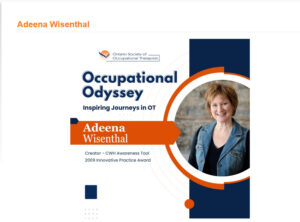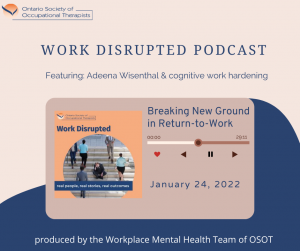I’ve been offering Cognitive Work Hardening (CWH) since June 2000 through my private practice, ERGO-Wise. At times referred to as my bridge2work™ program, it has been successful in helping hundreds of people return to work. These include administrative assistants, managers, software designers, nurses, and lawyers. In addition to anecdotal stories from clients and referral sources attesting to CWH’s effectiveness, my doctoral research confirmed support for its role in return-to-work preparation.
Cognitive work hardening is primarily offered to knowledge workers whose job demands are more intellectual in nature. This includes jobs that involve the manipulation of information, and require mental power to engage in tasks using cognitive skills such as planning, conceptualizing, and analyzing as opposed to employees whose work requires primarily manual skills.
My clients are typically individuals experiencing fatigue and reduced cognitive abilities (e.g., limited concentration) as a result of a mental health disability such as depression. Others have similar challenges due to sequelae of other conditions including cancer and post-concussion.
CWH is a multi-element treatment intervention that is customized to meet individual needs. I am proud to have been the first service provider in Ottawa to offer CWH. I am proud to have received personal accolades for the program I pioneered and I am proud to have completed scientific study on its role in return-to-work preparation. Indeed, my research findings have been published in the Canadian Journal of Occupational Therapy and Work: A Journal of Prevention, Assessment & Rehabilitation.
CWH is a sought after intervention by disability insurers and doctors. CWH is an intervention that other service providers try to emulate. I am proud to be the originator of my CWH program and look forward to training other therapists in its theory, delivery, and expected outcomes.








